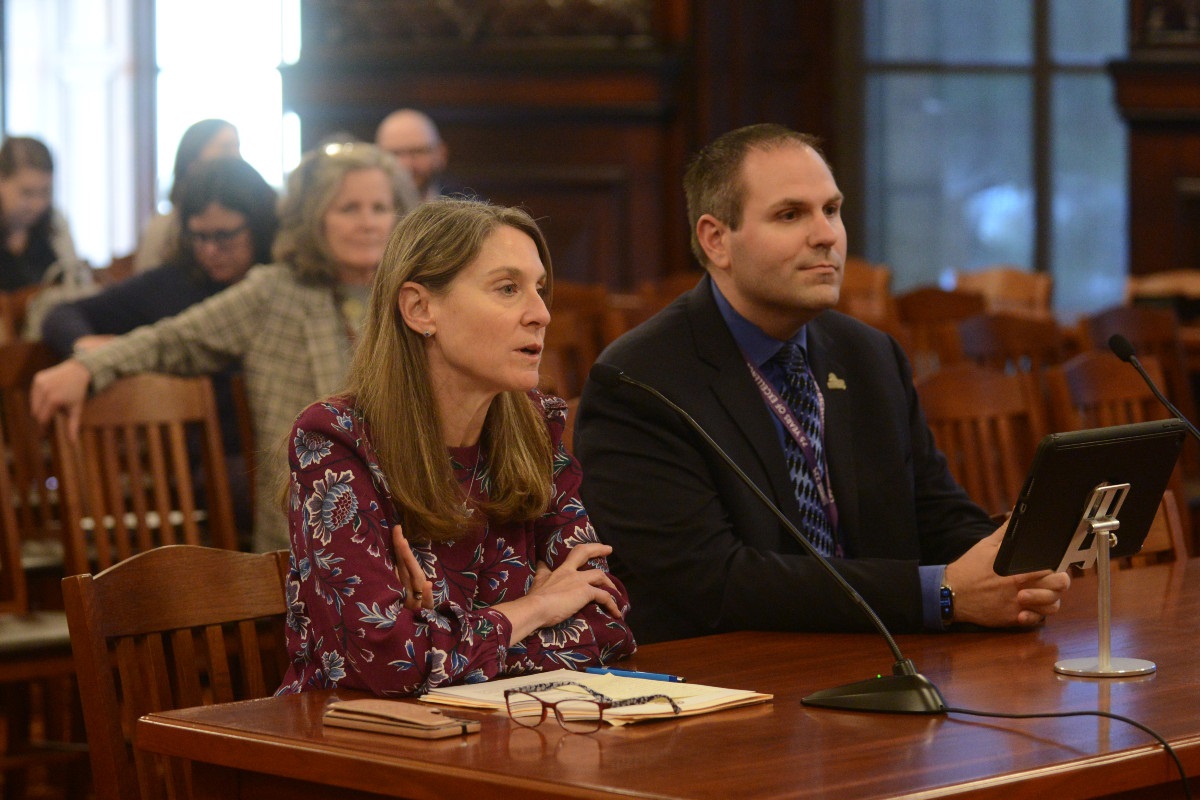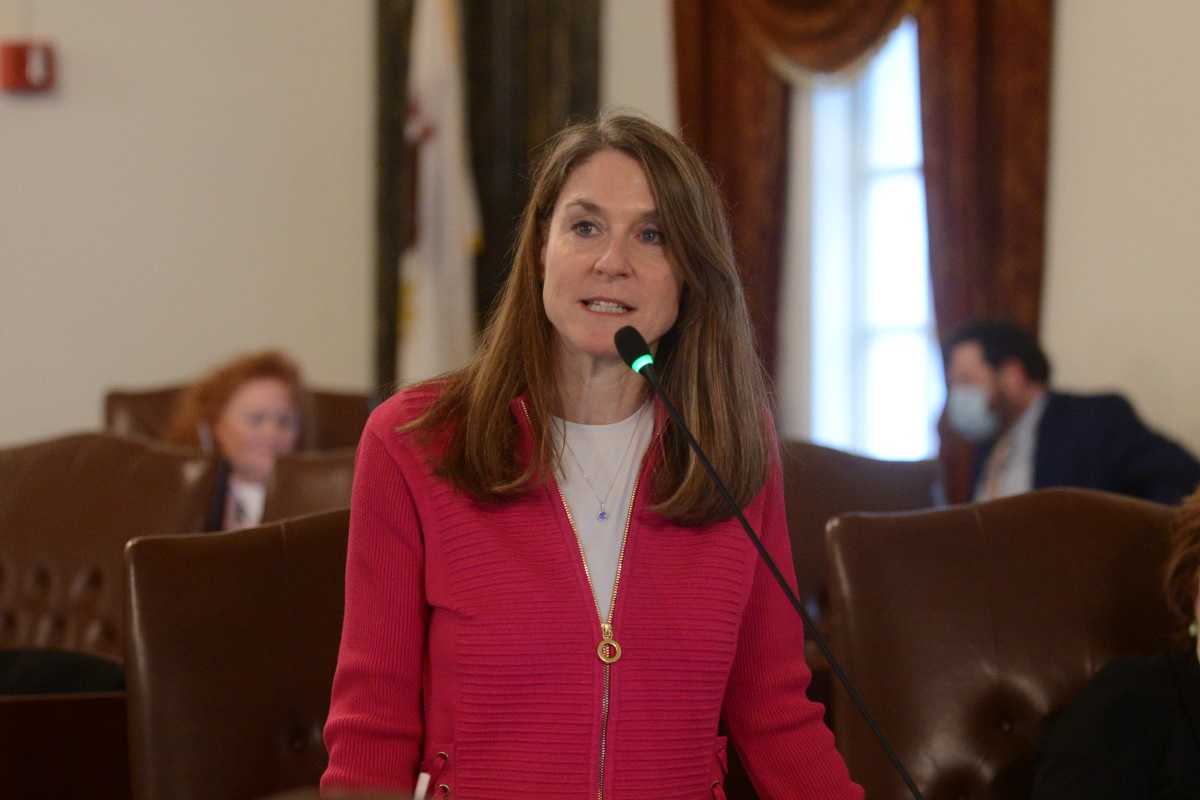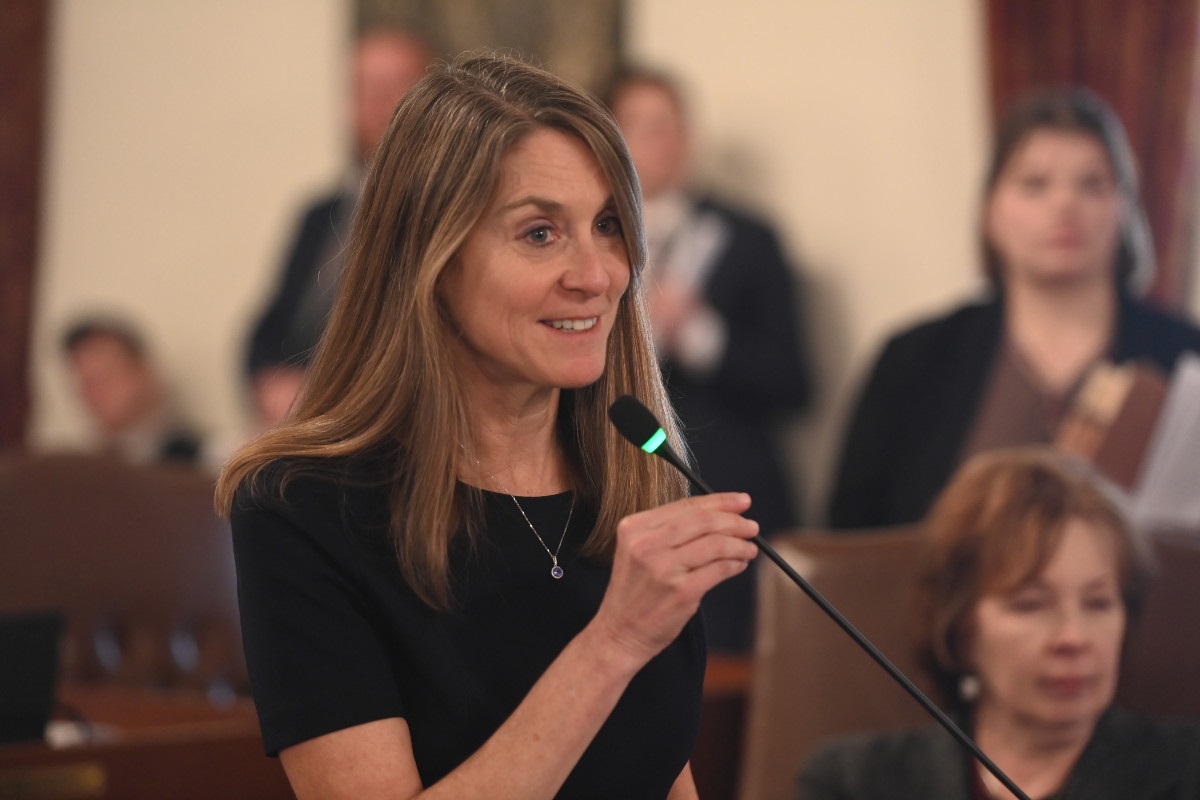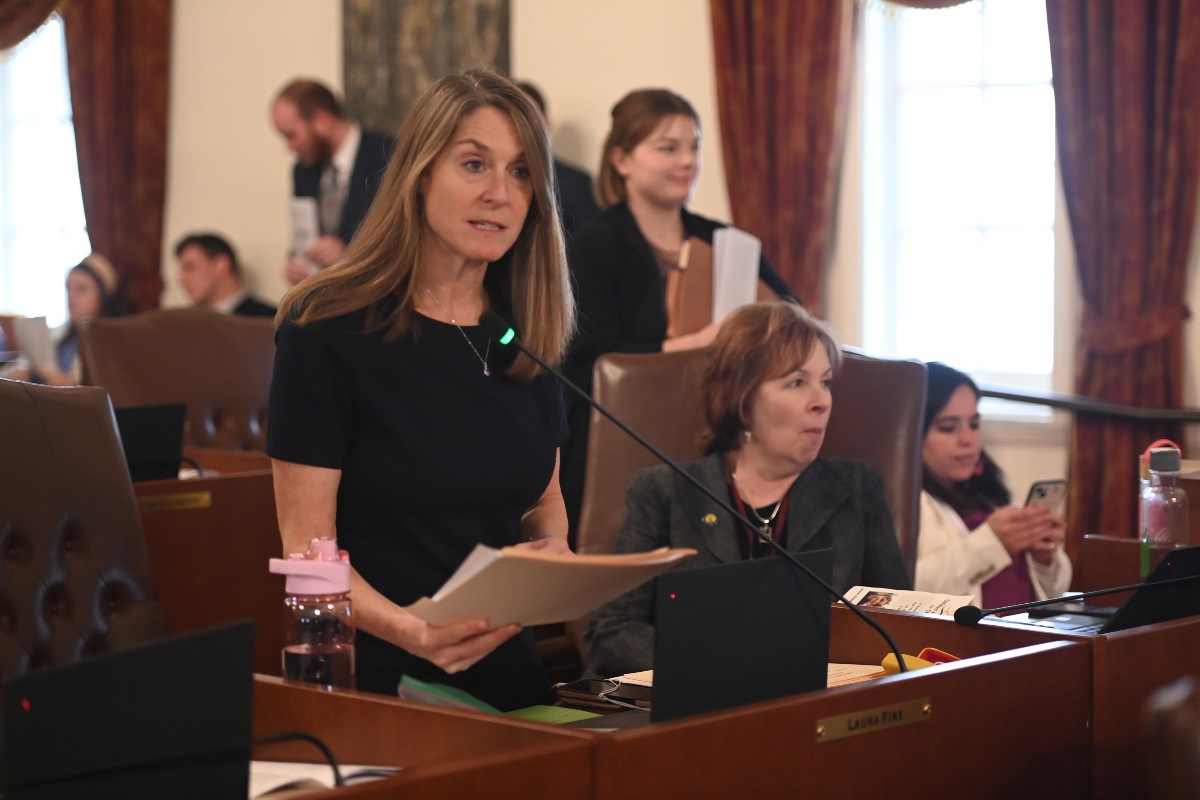- Details
- Category: Press Releases

SPRINGFIELD – Navigating the healthcare system can be challenging and time consuming, especially for patients with HMOs. Currently, to see a specialist, HMO patients first have to visit their primary care doctor to get their specialist appointment covered by their insurance. State Senator Laura Fine has introduced legislation in order to eliminate this hurdle.
“When it comes to your health, getting the right care in a timely manner can make a tremendous difference,” said Fine (D-Glenview). “With this initiative, people will be able to get the specialized care they need as soon as possible.”
House Bill 1186 would allow HMO patients to have appointments and care with in-network specialists covered by their insurance, eliminating the requirement to get a referral from a general practitioner. This will allow HMO patients to get the care they need in a timely manner.
Read more: Senator Fine makes specialty services more accessible for HMO patients
- Details
- Category: Press Releases

SPRINGFIELD – State Senator Laura Fine has passed legislation to ensure reports of abuse or neglect in state-operated developmental centers are thoroughly investigated and addressed. The legislation intends to address allegations of abuse at Choate Mental Health and Developmental Center in Anna, Illinois, where certain staff members have been accused and charged with multiple accounts of abuse to patients.
“Vulnerable residents living in state-run facilities are entitled to the best care possible and deserve to be treated with dignity and respect,” said Fine (D-Glenview). “This initiative will ensure people who take advantage of people in our care will face consequences for their actions.”
Choate Mental Health and Developmental Center serves patients struggling with mental and behavioral health concerns and/or developmental disabilities. Some employees of Choate have been charged with and found guilty of physically or emotionally abusing patients, as well as obstructing official probes and lying to investigators about wrongdoing.
- Details
- Category: Press Releases

SPRINGFIELD – State Senator Laura Fine’s legislation to require public institutions to provide accommodations for individuals with disabilities if they meet transparent eligibility requirements passed the Senate, making it one step closer to becoming law.
“Destigmatizing disabilities in our society is a multi-step process,” said Fine (D-Glenview). “Ensuring accommodations are easily accessible to university students is a good place to start.”
Currently, federal law only protects students with disabilities seeking public higher education from being discriminated against based on their disability and does not outline the need for reasonable academic accommodations past high school. Senate Bill 99 would establish a process for students with disabilities to receive reasonable accommodations from public universities and colleges.
- Details
- Category: Press Releases

SPRINGFIELD – To provide early detection of a rare genetic disease, Metachromatic Leukodystrophy, or MLD, State Senator Laura Fine advanced legislation to add a screening test for MLD to the Illinois Department of Public Health’s Newborn Screening Program.
“Early screening is essential to getting children the care they need as soon as possible,” said Fine (D-Glenview). “Adding MLD to the Newborn Screening Program would give families and children with MLD the opportunity to pursue treatment earlier — improving their quality of life.”
MLD is a genetic disorder leading to progressive loss of nervous system function and early death. Currently, MLD is diagnosed through a blood test looking for enzyme deficiency, a urine test or genetic testing. Additional tests can be conducted on those who show progressive symptoms of MLD. While there is no cure for MLD, diagnosing the disease early can lead to treatment options that make a difference in the patient’s quality of life.
Read more: Senator Fine to expand newborn screening test to include MLD
More Articles …
- Senator Fine bill supporting PANDAS/PANS patients barred from insurance plans passes Senate
- Senator Fine expands grant eligibility to include alcohol and drug counselors
- New Senator Fine legislation to make higher education transcripts more accessible passes Senate
- Senator Fine leads effort to protect student loan cosigners
Page 28 of 75







